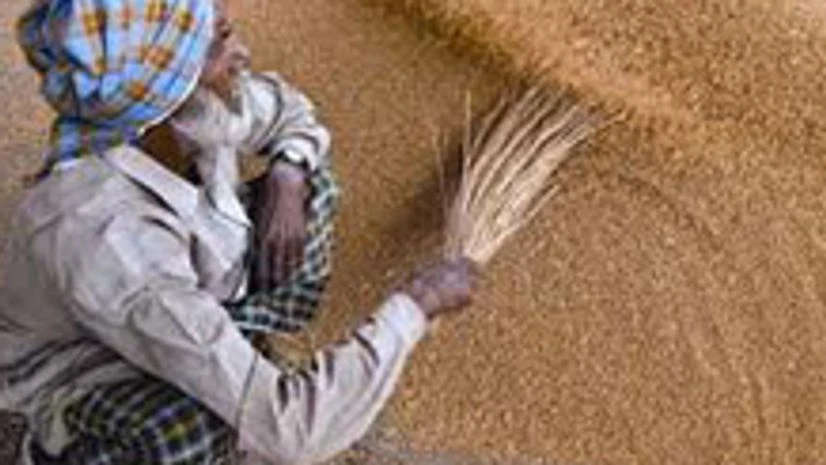According to official sources, India’s foodgrains stocks by June 1, 2013 could be around 90-95 million tonnes, unless inventories are liquidated at a brisk pace. The procurement will increase because of expected bumper wheat harvest, which has been further aided by recent bout of winter rains in most parts of northern and central India. This could further stretch India's existing storage capacities. Till date, Food Corporation of India and state agencies have around 71.5 million tonnes of storage space available with them, of which around 18.60 million tonnes is in covered area plinth (CAP).
As per government’s second advanced estimate, wheat production in 2012-13 crop year is expected to be around 92.30 million tonnes, marginally less than last year’s record output, with Madhya Pradesh, Punjab, Haryana and Uttar Pradesh producing more than 75% of the same.
The estimates show that, the biggest increase in procurement will come from Madhya Pradesh, which is gearing up to purchase a whopping 13 million tonnes of wheat in the next crop season, up almost 53% more than the current year.
The Madhya Pradesh manages to meet its procurement target for 2013-14 then it will surpass Haryana as India’s second biggest wheat producing and procurement state, after Punjab. Punjab is expected to procure around 14 million tonnes of wheat in 2013-14 and Haryana around 7.8 million tonnes.
The procurement will come at high cost for the Central government as the state has announced a bonus of Rs 150 per quintal over and above the Centre fixed MSP of Rs 1,350 per quintal. The total cost of purchasing the mammoth quantities of wheat from Madhya Pradesh will be somewhere around Rs 1,570 per quintal considering that the state levies around 4.7% as local taxes.
“In the first place I do not understand what is need for determining a procurement target at a time when paddy or rice is selling at 15-20% below the minimum support price (MSP) in almost entire eastern India. In areas where government procurement should be strong it is not, while in states which levy heavy taxes, government is keen on purchasing more, putting an additional burden on the central government,” Ashok Gulati, eminent agriculture economist and chairman of Commission for Agriculture Costs and Prices (CACP) told Business Standard.
He said plans to significantly increase India’s foodgrains storage capacities by almost 18 million tonnes is also moving at a slow pace and till now around 3 million tonnes have been added as additional capacities.
“The government should immediately waive off the existing stock holding limits in foodgrains and keep them in abeyance for at least 10 years to ensure that private investments are attracted in India’s storage sector. Moreover, there should be a meeting with the states to direct them to reduce their state taxes on foodgrains and any state which levies more than 5% local tax on grains, procurement should be stopped from that state,” Gulati said.
He said unless government takes some strong pro-active steps in the next few weeks, there could be a big problem in hands as rice stocks are also expected to more in 2013-14 as compared to this year because of slowdown in exports.
In 2012, India managed to export almost 10 million tonnes of rice because of favourable global market, but this year exports could be somewhere around 6-7 million tonnes as Vietnam, which is big player in the global rice market has started undercutting its price to upstage Indian players.
As on February 1, 2013, foodgrains stock in the central pool with Food Corporation of India (FCI) and state agencies is estimated to be around 66.31 million tonnes, a mind-boggling over 200% more than the required quantity.
In this rice stocks are estimated to be around 35.3 million tonnes, as against a requirement of 14.2 million tonnes, while wheat stocks are estimated to be 30.8 million tonnes, as against the requirement of 7 million tonnes.
“The sub-optimal management of food economy should be stopped or else there will be a big problem,” Gulati said.

)
